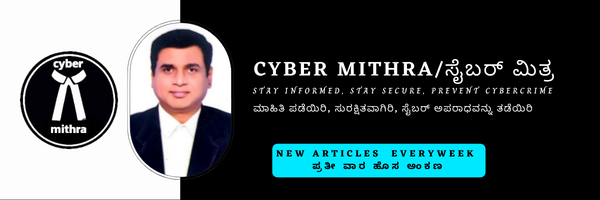CyberBullying cyber crime : What you need to know
12 years old Harish was very fond of playing online multiplayer game. He had a online gamer friends circle and everyday between 8 to 9 pm after his studies would play some multiplayer game. His mother noticed that Harish’s behavior for last one week had changed drastically, he had lost interest in studies and his favorite online gaming, he was speaking less, eating less and would wake up during sleep screaming and had become an introvert. When the parents spoke to him in confidence and checked around for the reason for the change in his behavior, they found that couple of his friends in his online gamer friends circle were harassing, embarrassing and targeting Harish while playing. Harish was a victim of cyber bullying cyber crime.
Cyberbullying is when someone uses technology to harass, threaten, embarrass, or target another person. Cyberbullies use mobile phones, computers or other electronic devices to send texts, emails or instant messages; post comments on social media or in chat rooms; or in other ways use private or public forums to attack their victims. Cyberbullying has become so prevalent among Children and teens because cyberbullies can hide their identities and location online, operating anonymously or under an alias anytime. cyberbullying can affect victims physically, mentally and emotionally, leaving them feeling afraid, angry, ashamed, tired or experiencing symptoms such as headaches or stomach aches and these effects can last long time.
How to protect oneself from Cyberbullying :-
- Teach your children how to recognize and be aware of the signs of cyberbullying and contact you first if bullied.
- Be aware and keep an eye on your child’s online activities and their sudden behavioral changes.
- Make sure your child knows never to share the password, post location online, or share any sensitive information.
- Accept friend requests from only people you know well and that too only after checking the genuineness of request.
- Moving computers out of children’s rooms or putting limits on cell phone and video game use can help keep your child away from Cyberbullies.
- Ensure you secure your account on social media through settings to restrict who can access your information and view certain details such as friends lists, personal information etc.
If your child is a victim of CyberBullying fraud :-
Immediately file a complaint by contacting Cyber Helpline number 1930 or on their website www.cybercrime.gov.in or visit a child crime specific police station and file a FIR and take their advice. Take a backup of all the conversations and any other incrementing details as they will be needed as evidence for convicting the culprit. Comfort your child or the victim and if needed take the help of therapist’s to work through the mental and emotional effects.
Remedies available to the victim legally in India :-
You can register a criminal case at your nearest cyber or children specific or regular police station, under the following legal sections or the Act as per sections prescribed by the police based on your case :
- Indian Penal Code (IPC) section 292 (distribution or circulation of obscene material), section 354 (criminal force or assault on a woman with an intent to insult her and outrage her modesty), section 354A-D(Sexual harassment and punishment), section 406 (punishment for criminal breach), section 419 (punishment for cheating by impersonation), section 420 (cheating and dishonestly inducing delivery of property), section 424 (Unlawful extraction of data), Section 441 (Criminal Trespass), Section 499 (Defamation), Section 500 (Punishment for defamation), Section 503 (Threats to injure the reputation of a person), Section 507 (Criminal intimidation), Section 509 (Insult to privacy and modesty).
- Information Technology Act 2000/08, Section 43 (Penalty and compensation for damage to computer, computer system, etc.), Section 66 (Punishment for computer related offenses – theft of data, transmission of virus to system, destruction of data, hacking or access to computer or network to a authorized person), Section 66C (Penalty for identity theft and fraudulent or dishonest use of identity information), Section 66D (Punishment for impersonation fraud using computer resources), section 66E (violation of privacy), section 67 (publishing or transmission of obscene and sexual content over an electronic medium), section 67A (publication of obscene material in electronic form).
- Various sections under Indecent Representation of Women (Prohibition) Act, 1986 and The Protection of Children from Sexual Offences Act, 2012

